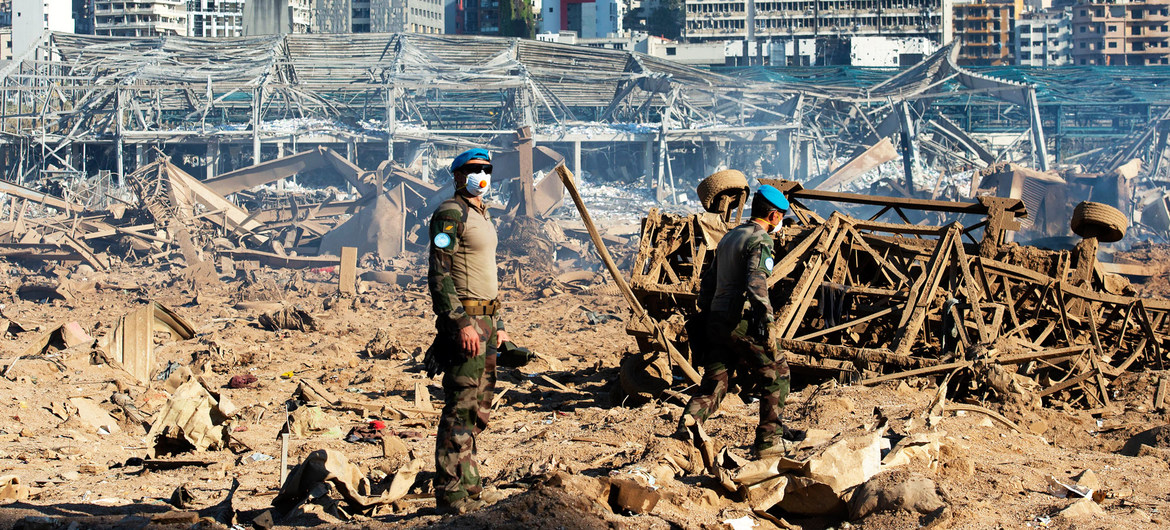
Humanitarian aid mobilized in force to support Beirut after deadly blast
The response to Tuesday’s explosion in Beirut requires global support in order to “surmount the devastating impact” of the crisis facing the Lebanese people, the UN Deputy Special Coordinator for the country has said.

Reiterating the Secretary-General’s commitment to assist Lebanon, Resident Coordinator Najat Rochdi, who also coordinates the UN humanitarian effort in the country, has released $9 million from the Lebanese Humanitarian Fund to help meet immediate needs.
“With the emergence of new challenges due to the latest devastating event, UN in Lebanon and partners are mobilized to provide immediate humanitarian assistance to the Lebanese people in support of the government’s response to this tragedy”, she said.
Saying that she has been deeply moved by the peoples’ solidarity and spontaneous acts of kindness, she spelled out: “We are in this together, and we are committed to support Lebanon in this very difficult time”.
Strengthening capacities
UN emergency relief chief Mark Lowcock will also release additional funding from the Organization’s Central Emergency Response Fund (CERF) to address immediate needs and help strengthen the capacity of existing hospitals.
This will include expanding and establishing additional Intensive Care Units (ICUs) where needed, and provide trauma kits, ventilators, medical supplies and medicine.
Displaced and traumatized
Almost 80,000 children are among the 300,000 people displaced by the Beirut explosions, according to UN Children’s Fund (UNICEF) estimates, with affected families in desperate need of support.
The explosions caused an estimated 140 fatalities, 5,000 injuries and hundreds still missing.
While the number of child casualties is unclear, thousands of children’s lives have been turned upside down, with many traumatized and in shock.
“Over the past 24 hours, UNICEF continued to coordinate closely with authorities and partners on the ground to respond to the urgent needs of families affected, focusing on health, water and the wellbeing of children,” said Violet Speek-Warnery, UNICEF Deputy Representative in Lebanon.
Hospitals hit
According to the World Health Organization (WHO), the blast has rendered three hospitals inoperable.
At the same time, two other facilities sustained substantial damage, and the equivalent of 500 hospital beds have been lost.
While Beirut International Airport remains open for passenger and cargo flights, the port of Beirut – where the explosion took place – is destroyed.
The port was the main lifeline of the country as both an economic hub and the main entry point for many essential medicines and supplies.
“With the Beirut Port inoperable, the UN and its partners are looking to adjust logistic networks to ensure sustained operations”, said Mr. Haq.







